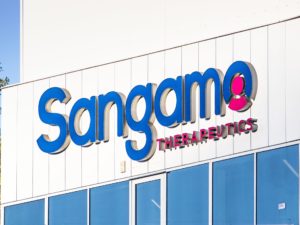Three years ago, the FDA granted landmark approval to the first in vivo gene therapy for treating an inherited eye disease. Luxturna, an AAV2 based gene therapy developed by Spark Therapeutics, bagged regulatory win to treat this eye disease called Leber congenital amaurosis. Since then, the agency has approved Zolgensma, a spinal muscular atrophy treatment, and has given green light to dozens of small and big biotechs to start clinical trials for their gene therapies.
The success of approved gene therapies has resulted in a surge in interest of biopharmaceutical developers in this rapidly evolving domain. There are currently more than 800 gene therapies under development, most of which are in the early stages, while the rest are being evaluated in clinical trials. More than 40% of gene therapies are intended for the treatment of oncological indications.
As many investigational gene therapies continue to demonstrate clinical and commercial potential, companies including small and large biotechs are positioning themselves for opportunities to acquire new gene therapy technologies. Notable deals last year included the acquisition of AskBio Pharmaceuticals by Bayer for $4 billion and of Prevail Therapeutics by Eli Lilly for $1.5 billion. Based on the clinical data and pipeline products, GeneOnline analyzed key emerging gene therapy and gene editing companies that are set to make a mark in 2021. Here is a list of them in alphabetical order.
1. Asklepios BioPharmaceutical
Asklepios BioPharmaceutical is a clinical-stage company that focuses on genetic medicines. Its roots in the field of gene therapy are 40 years deep, long, and branched. The company has a gene therapy for Pompe disease with 6 patients that got started 23 months ago. They are active in Parkinson’s disease with 13 patients.
On top of that, they have the heart program, which specifically targets congestive heart failure and a variety of preclinical programs for diverse indications that will be in the clinic soon. Furthermore, AskBio has deals with Pfizer on DMD as well as Takeda on hemophilia program, which is being tested in the clinic currently.
Last year, the company was acquired by Bayer and now is expanding its pipeline as well as expertise in neuroscience with the new Parkinson’s and multiple system atrophy program it received through a Brain Neurotherapy Buyout. It took almost 20 years, but Jude Samulski, a pioneer of AAV technology and founder of Ask Bio, is finally turning the company into a gene therapy behemoth, and it is a must to watch company in the future.
2. CRISPR Therapeutics
CRISPR Therapeutics, founded by Pioneers of CRISPR technology and Nobel Prize winners Dr. Jennfier Doudna and Dr. Emmanuel Charpentier, is a gene-editing company whose mission is to rapidly translate efficient and versatile CRISPR/Cas9 gene-editing platform into therapies that treat hemoglobinopathies, cancer, diabetes, and other diseases.
The company has five clinical-stage programs, including two blood disorder programs and three immune-oncology programs. Its lead program that targets blood diseases such as thalassemia and sickle cell disease (SCD), CTX001, has entered clinical testing and has shown remarkable response- following treatment, 10 out of 19 patients with these blood disorders produced normal to near-normal levels of the protein hemoglobin, which is missing or abnormal in people with severe beta-thalassemia or sickle cell disease.
The treatment foregoes the need for blood transfusion in these patients for at least 3 months or as long as 20 months. With limited treatment availability, CRISPR’s therapy upon approval will generate more than $1 billion in revenue for the company. Along with the blood disorders, the company is also working on its first allogeneic CAR-T program targeting B-cell malignancies. Allogeneic CAR-T therapies use genetically engineered T cells from healthy donors. The success of the company’s allogeneic CAR-T therapy could make it one of the hottest biotechs in the market in 10 years.
3. Editas Medicine
Editas Medicine, founded by George Church, Feng Zhang, David Liu, and J Keith Young, is a leading genome editing company that became the first one to test CRISPR-based gene editing medicine inside the body. The first in-vivo CRISPR medicine, EDIT-101, targets mutation in the genome that results in congenital blindness. The company recently finished dosing for its first group of patients in earlier-stage human trials. It also bagged the US FDA’s nod to begin clinical trials for its second medication, EDIT-301, a treatment for sickle cell disease. Dosing of the SCD patients with EDIT-301 will begin this year. Furthermore, Editas has multiple preclinical drugs focused on genetic diseases. A single drug approval in this space would fetch the biotech significant dollars that would boost its value dramatically.
4. Homology Medicines
Homology Medicines is another gene therapy company that is developing therapies for rare diseases by using a fundamentally new approach. This new approach relies on homologous recombination, a process used naturally by the cells for repairing DNA sequence. The company is well known for its phenylketonuria therapy, HMI-102, that just completed its Phase 1/2 trial. The treatment was found safe and effective at reducing the levels of Phenylalanine, an amino acid that accumulates in PKU patients in the body. The data impressed Pfizer so much that within days of its release, Pfizer made an investment worth $60 million in Homology.
While this is the only therapy under clinical investigation, the company is making other tie-ups to further its gene therapy platform. It made a deal with Novartis in 2018 to develop new therapies for certain ophthalmic and hemoglobinopathy diseases. The success of any of the drugs would give Homology medicines its very first approved therapy and confidence that its technology works.
5. Intellia Therapeutics
Intellia is a gene-editing company co-founded by Jennifer Doudna that is using CRISPR as therapy and CRISPR for creating therapies for multiple indications. But its lead candidate and the most advanced one is for a rare and fatal disease known as transthyretin amyloidosis, also known as ATTR. The drug is currently being developed in collaboration with Regeneron and is being tested in the Phase 1 trials.
The company is also working on ex-vivo Sickle Cell Anemia treatment with Novartis that involves editing cells outside the body before infusing them into the patient. The candidate is entering Phase 1/2 trials. Intellia has been a strong performer this year, rising 13% since early January. The gains come as the company outlined strategic priorities for 2021, which include continued advancement of a Phase 1 study for a single-course therapy for transthyretin amyloidosis and the planned submission of a regulatory application for the treatment of acute myeloid leukemia. The company has 8 other candidates, which are still in the research stages but are certainly to look out for this year.
6. Passage Bio
Passage Bio is a genetic medicines company that is working to address some of the world’s rarest and most devastating neurological diseases affecting infants and adults. Company’s three lead investigational gene therapies, which it picked up through a partnership with the University of Penn: PBGM01 for the treatment of GM1 gangliosidosis (GM1), PBFT01 for frontotemporal dementia with granulin mutations, and PBKR03 for Krabbe disease, received Fast Track designation this month. The clinical trial for the GM1 program was initiated last year, and the other two will be initiated early or late this year. With more than $400 million in bank account gained through series A funding and IPO and leadership and vision of gene therapy pioneer James Wilson, Passage Bio has a bright future.
7. Pfizer
Early last year, Pfizer laid out an ambitious plan of becoming the third big pharma with a significant presence in gene therapy. It initiated dosing of patients in three Phase 3 trials targeting mutation-driven blood diseases such as hemophilia A and B and muscular diseases, Duchenne muscular dystrophy. Many, however, questioned how Pfizer plans to execute its plans given a strong competition in the gene therapy market for hemophilia and Duchenne treatments. Now that the competition in the market has reduced following clinical hold on uniQure’s hemophilia A treatment and FDA’s disapproval of BioMarin’s hemophilia A treatment, Pfizer might actually become a leader in the arena.
8. Poseida Therapeutics
Poseida is a San Diego-based CAR-T biotech company that is using its proprietary gene engineering platform technologies to create next-generation cell and gene therapies for targeting hematological and solid tumor oncology indications. The company is developing products based on its core platforms, including its non-viral piggyback DNA modification system, Cas-CLOVER site-specific gene-editing system, and nanoparticle-and AAV-based gene delivery technologies.
The company’s first and only program in clinical development, P-BCMA-101, is a solid tumor autologous CAR-T product that will treat patients with metastatic castrate-resistant prostate cancer. The program is being backed by Novartis and has reached Phase 2 clinical trial. It is also developing an allogeneic “off-the-shelf” CAR-T product for the treatment of relapsed/refractory multiple myeloma.
9. Prevail Therapeutics
Prevail Therapeutics is a company that is fighting neurodegenerative diseases using its gene therapy platform. The company is rapidly progressing in the field. Within 3 years of its launch, it initiated clinical trials of two gene therapies, PR001 and PR006, for genetically driven Parkinson’s and frontotemporal dementia, respectively. Following the acquisition by Eli Lilly, these programs could rapidly advance to late-stage trials. It has several other gene therapies in preclinical testing, including candidates for neurodegenerative conditions known as synucleinopathies, as well as Alzheimer’s disease.
10. Sangamo Therapeutics
Sangamo is a gene-editing company that has been recently in the news for its hemophilia A med. After BioMarin’s regulatory setback, the hemophilia community is eyeing Sangamo’s drug with great interest. In the Phase 1/2 trial, Sangamo’s hemophilia A med that uses zinc finger gene-editing method prevented any bleeding events and overcame the requirement of external factor VIII injections for at least a year.
With hemophilia A study approaching the finishing line, the company is building other collaborations to use its platform and develop new therapies. In that wake, Sangamo joined hands with Biogen to develop and commercialize Sangamo’s gene regulation therapy candidates in neurology, including Alzheimer’s, Parkinson’s, and a neuromuscular disease that could generate $2.7 billion-plus for Sangamo following approval.
Summary
Gene therapy is arguably the most remarkable and exciting area of biotechnology at this moment as it has achieved treatment of diseases unthinkable 10 years ago. Recent successes in genetic medicine have paved the path for broader therapies and laid the foundation for next-generation technologies. Extensive research in the field has shown that gene therapy can go above and beyond indications such as cancer, for which it is currently being developed extensively. Soon, we will see therapies that may reverse aging or help a paralyzed patient walk. As more players, small or big, join the league, one expects a tremendous surge of therapies for rare and common diseases in the near future.

Coming Up Next: An Expert Interview on Gene Therapy Advances in Hemophilia
©www.geneonline.news. All rights reserved. Contact: service@geneonlineasia.com





